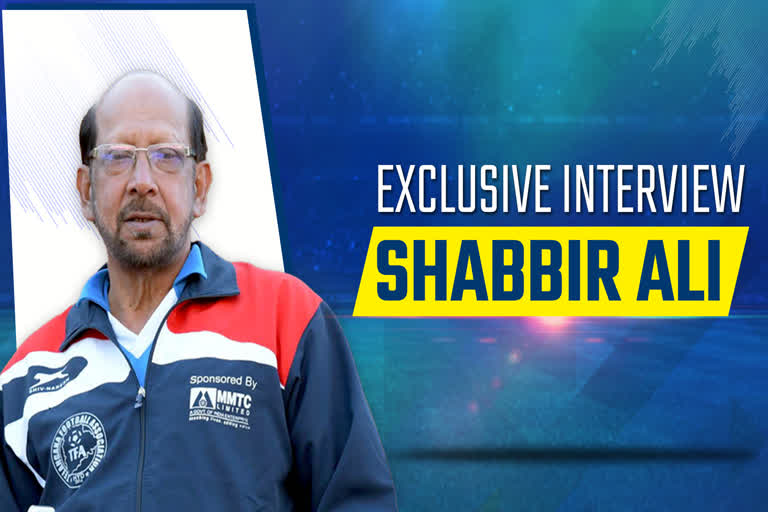Hyderabad: Star players usually avoid coming to coaching. But Shabbir Ali, arguably the best forward of his time, became a successful coach upon his retirement from the game. He is, in fact, one of the rare Indian footballers who earned success both as a player and coach.
For over a decade from the early 1970s to 1980s, he was an automatic choice for the Indian national team. His ability to create space near the box and find the back of the net made him a tremendous striker.
He is India's fourth-highest goalscorer with 30 goals behind Sunil Chhetri, Bhaichung Bhutia and IM Vijayan. In 1976 Merdeka Tournament, he had notched up a hat-trick within 35 minutes into the first half against Indonesia. It is considered the fastest hat-trick in the history of Indian football. It is a testament to why Shabbir Ali gets legendary status in Indian football.
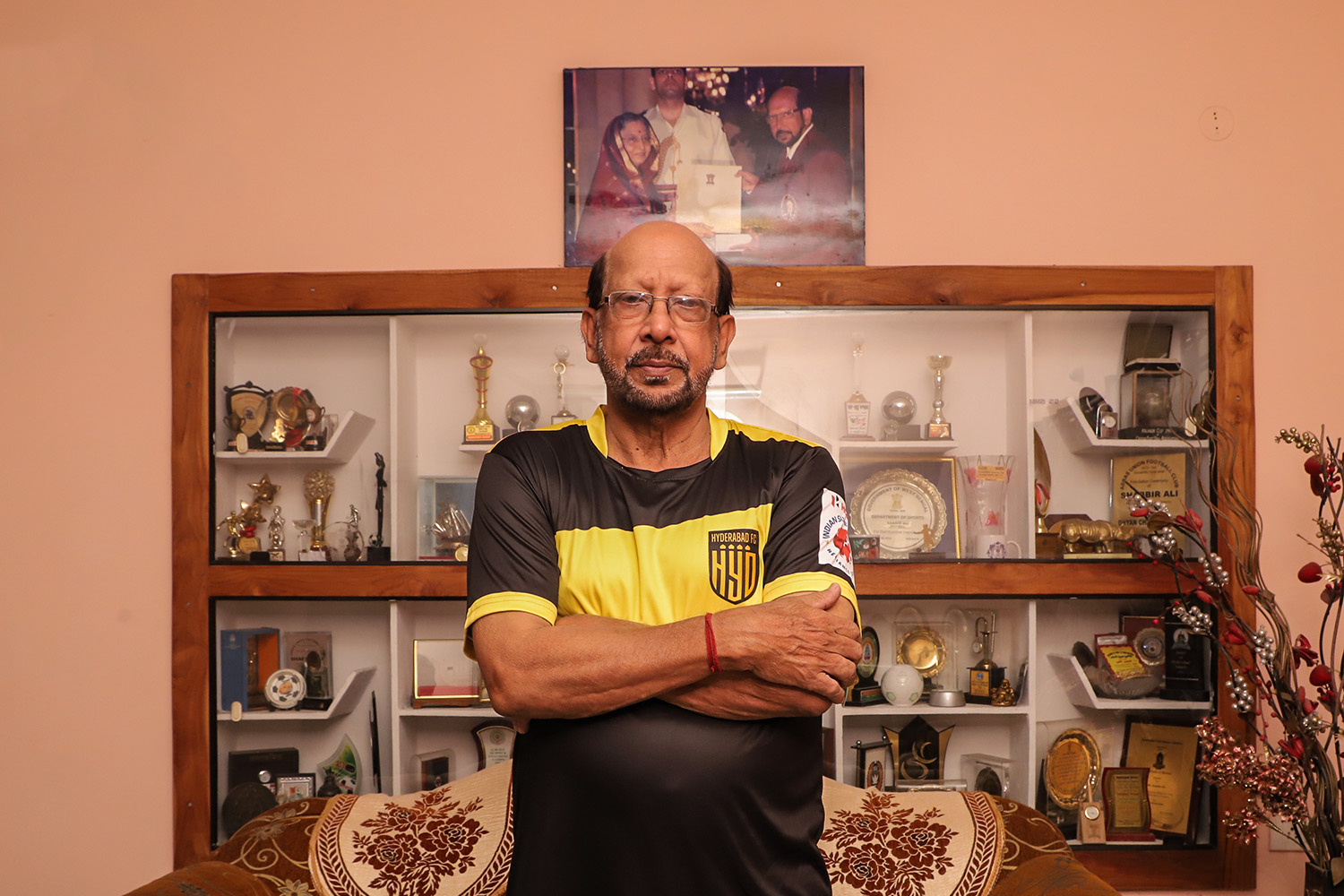
Upon his retirement in the mid-1980s from all forms of football, he became a coach. Under his coaching, Salgaocar FC, from 1997 to 2000, won the Indian Super Cup, National League, Rovers Cup and Durand Cup. No other teams in India have managed to enjoy such a great run in the country's football of late.
It was a testimony of Shabbir's inspiring coaching skill. It would not be an overstatement to say that Shabbir just like late Pradeep Kumar Banerjee and Syed Naimuddin succeeded both as player and coach.
Shabbir also held the position of Technical Director of the Indian national team in 1995 SAFF Championship when India won the South Asian championship for the first time after three years.
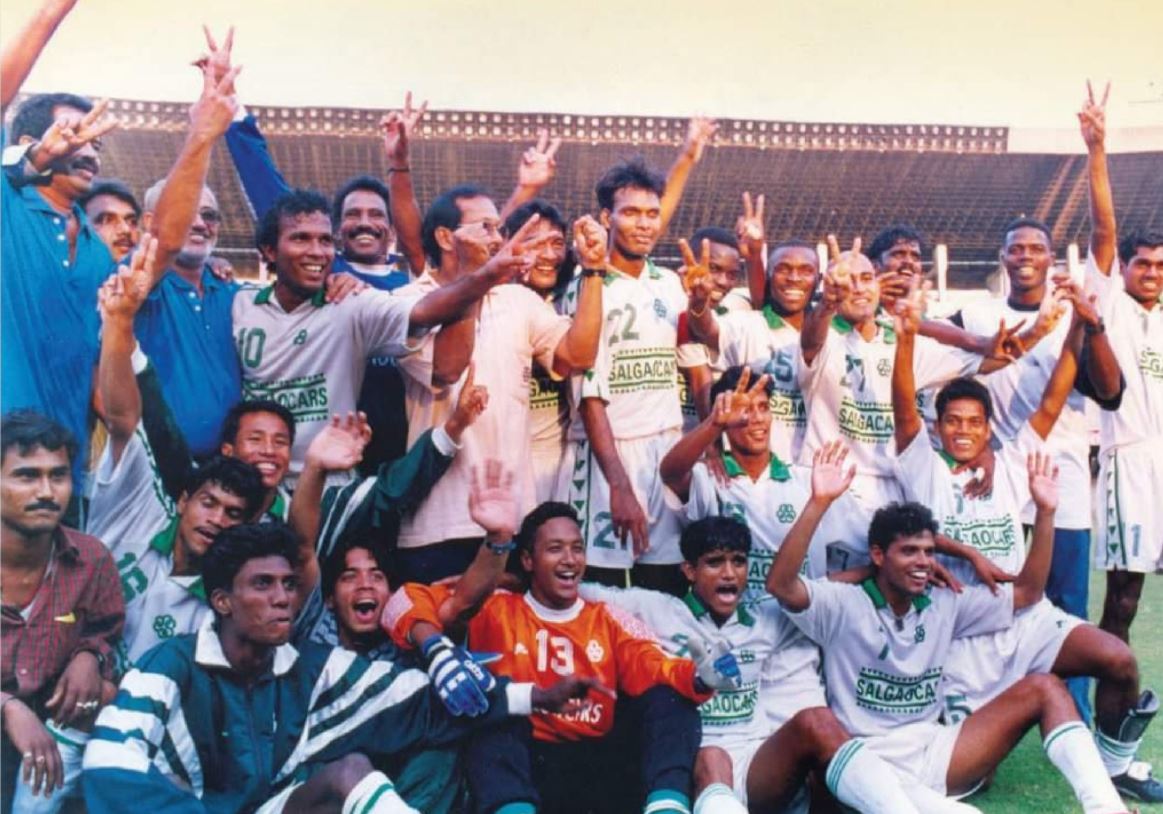
Dhyan Chand awardee Shabbir, who was a one-touch player, turned 65 on January 26, said, "Whatever I have become today because of football. Before retiring I was thinking I got everything from football. Now I have to give something back to the game. So, that is why I became a coach. Before retiring in 1987, I was player-cum-coach of Mohammedan Sporting. In 1988-89, I have pursued a diploma from NIS."
"In 1990 before joining any team, by god's grace, I got to work with former national team coach Joseph Galie as his assistant. That helped me a bit," he added.
"I am a product of Abbas Union"
The Hyderabad footballer, who started his professional playing career in Mumbai with Tata Sports, moved to Kolkata in 1972-1973 to join East Bengal. But just after finishing a season with the Red and Gold, Shabbir got an offer from Mohammedan Sporting. He didn't think twice before making the move which later would define his legendary status in Indian football.
He played for the Kolkata giant for over a decade and took the club to a great height winning them Calcutta Premier League (1981), DCM Trophy (1980) and successive Federation Cup trophy in 1983 and 1984 respectively. On both occasions, Mohammedan Sporting defeated Mohun Bagan and East Bengal to win the prestigious Federation Cup. Nevertheless, playing for Mohammedan Sporting Shabbir became a household name in Indian football.
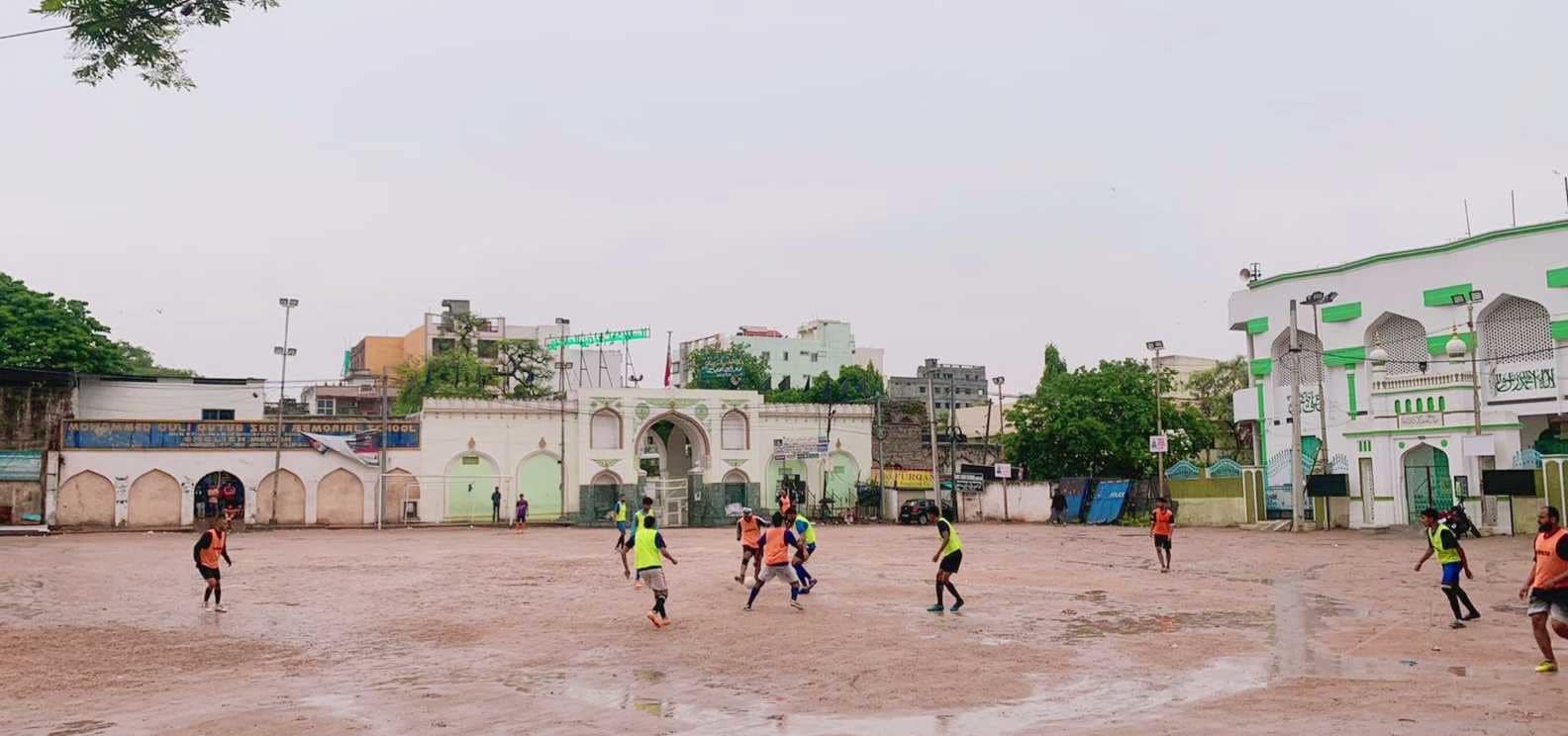
But where did he begin playing football and hone his skills before bursting into the spectrum of Indian football?
"I started my career in Hyderabad with Abbas Union, Darulshifa. We got a small ground. I am a product of Abbas Union. My home was in front of the ground, I used to play there," said Shabbir.
"But my decision to play football faced serious resentment. Initially, my parents were against my decision because at that time everybody wanted their son to become a doctor or engineer. And there was a famous saying at that time which parents used to tell us, “Padhoge Likhoge Banoge Nawab, Kheloge Kudoge Banoge Kharab” (Study and you become prince, if you play you turn into spoilt)
"But I was adamant. My parents noticed that I am good at playing football and supported me in my endeavour to become a footballer. Later my wife and my children also supported me a lot," Shabbir, who was the captain when India finished as the joint champion in 1974 Asian Youth Championship, recalled his early days as a budding footballer.
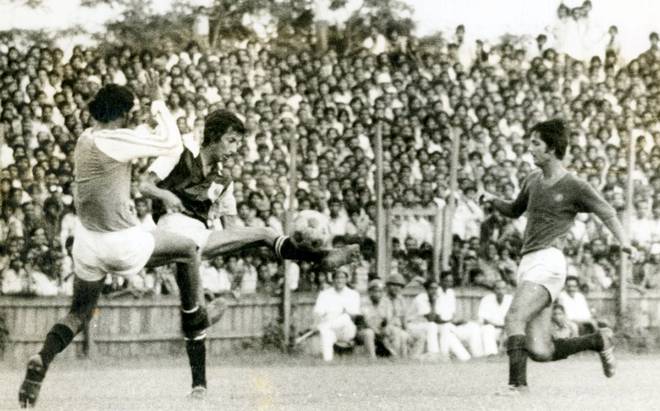
Starting at the Abbas Union, Shabbir initially played for Hyderabad Arsenal and Andhra Pradesh Special Police before moving out of the city. Hyderabad Arsenal, which was known for nurturing young players, came into being at a time when legendary coach Syed Abdul Rahim was at the helm of now-defunct Hyderabad Football Association (HFA).
Shabbir, who now lives in Hyderabad, is still associated with his childhood club Abbas Union and planning to open his academy in his quest to produce future stars from the old city.
ISL Musings
On being asked to name the team which impressed him the most in the ongoing season of Indian Super League (ISL), Shabbir said, "Earlier I used to support Kolkata. But as Hyderabad FC came into being I am supporting HFC because I am from this city. I am very happy that they are really playing well this season. The club was formed only last year, and this year they surprised everyone with their performance. That is amazing. But right now ATK Mohun Bagan and Mumbai City are at top of the table. So, the contest for the third and fourth spot is between FC Goa, NorthEast United and Hyderabad FC."
The sexagenarian also believes ISL did a lot good to Hyderabad football as it proved to be a catalyst in reviving city's diminished football culture.
"With ISL the good thing that happened is that Hyderabad came into the picture, which was not there for many years. Now with HFC, I hope football will once again gain the momentum in Hyderabad," Shabbir said.
The former India captain also believes the impact of ISL in Indian football is not too big, but the league is way better than its predecessor I-League. From the context of a comparison between ISL and I-League, football in India has improved to "some extent" Shabbir feels. But he also cautioned that the real change in Indian football will only be visible when the national team will be able to perform at the international level.
"The way of playing in ISL is completely different from the I-League. If more teams come into the league that would be good. And if the league continues throughout the year, then it will be good for Indian football. In the last few years, ISL held only as a short tournament. And except for ISL, there is no other tournament in India which worth its salt. So, if more players come into ISL and more teams join ISL from states which at present have no team in the league, then I am sure football will improve in India. But until India perform at the international level the change between ISL and I-League will hardly be visible," Shabbir opined.
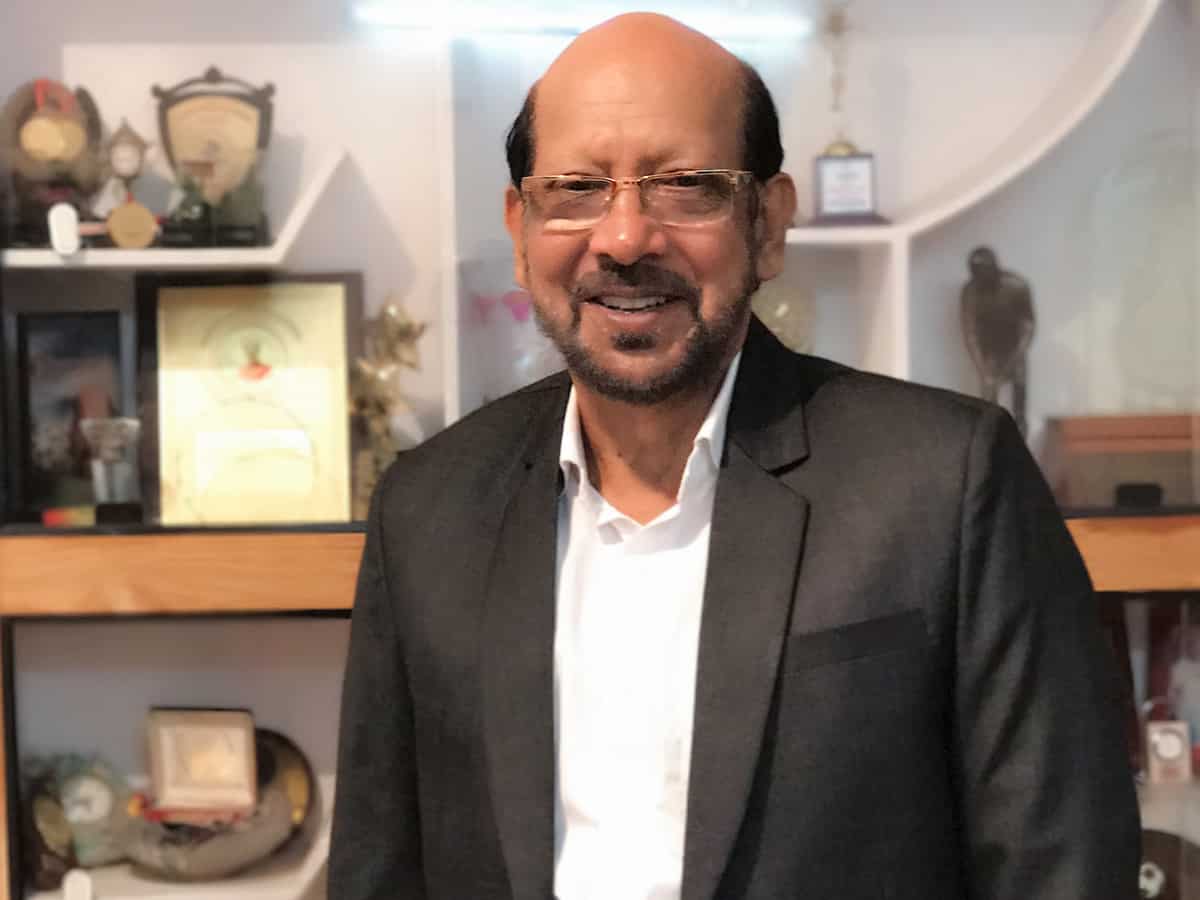
Offering an insight into the current problem with Indian football which is only confined to a few states, Shabbir said, "More teams have to be there to make football a national sport. Representation from all the states has to be ensured. Back in 2008 when I was the coach of Mohammedan, clubs from only four states were playing in the I-League. Most of the teams were from Goa and West Bengal. But in ISL, almost all southern states have their teams now, and teams from Bombay and North East are also there. But at present, there is no team playing in ISL from northern India. This gap needs to be bridged to make football a national sport. It would be good if all the states have at least one team each in ISL," Shabbir suggests.
"Government will also have to do something, then only football will improve. In our time, the thinking was that if we get to represent the state we will get a job. Sorry to say, all over India there are no jobs for footballers now," he added shedding light on the primary reason behind football's decline in popularity at various places in India.
Awards and Negligence
When asked why no Hyderabadi got Padma Shri award despite the fact that 14 Olympians and 21 international players represented India in Olympics and various international tournaments from the city, Shabbir attributed it to carelessness.
Legendary coach Rahim was never honoured despite coaching India to their best ever performance in Olympics, a fourth-place finish in 1956 Melbourne Games, and helping the nation win the Asian Games gold medal in 1962 Jakarta Asiad, which is by far Indian football's most remarkable moment ever in its history.
Legendary footballer Tulsidas Balaram, who has been suffering from age-related illness for quite some time now, has never been considered for the Padma award despite his contribution to the Indian team in 1956 Olympics and 1962 Asiad. Though he is regarded as one of India's finest footballers and a versatile striker, Balaram never got his due. He has always been meted out with poor treatment both by AIFF and state and central governments.
"He (Balaram) is a great player, a role model for young players. The government must do something for him. I am really surprised why he was not given the Padma Shri award. It is not about Hyderabad, Telangana or Andhra Pradesh, even Bengal (West Bengal) also can refer to his name for the award. He was always with football. But nobody cares about him," Shabbir, who himself never gets the Arjuna award, lamented.
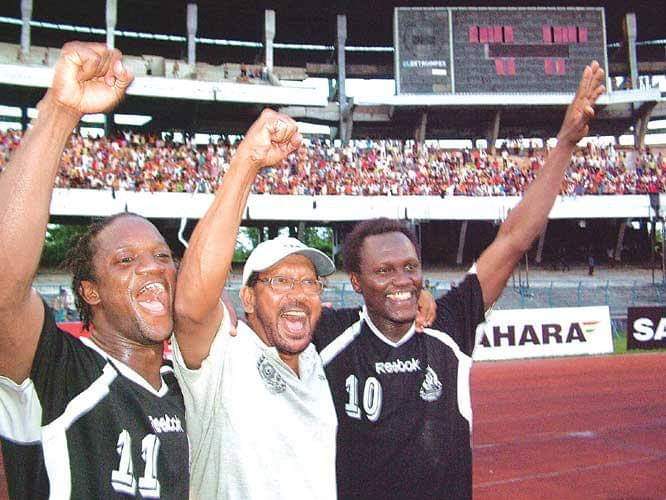
"It is high time, the government must look into it and honour him with the Padma Shri," he yearned.
"Ignorance has always been there in football," Shabbir said.
"In 1989, the Durand Committee had invited all the captains of the Indian team. They didn't invite me. Even some of the captains got the invitation for the Nehru Cup, but I didn't get any invitation. Even in the 2017 U-17 World Cup, I was ignored. I was the captain of the youth team in 1974 when India last won an international tournament. But I didn't get any invitation from the government. I think there is no use of complaining and talking about this. Now since you asked me about Balaram anna that is why I am saying," said Shabbir.
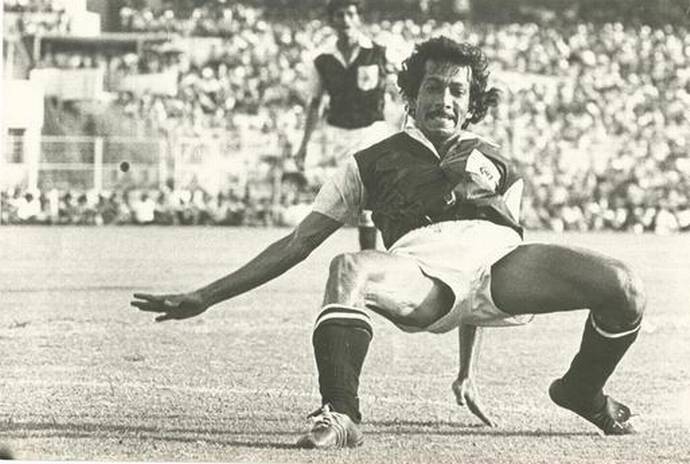
Data preservation of former players' career not done
"As you asked about the number of goals and number of matches I must tell you that this has been going for the last three-four years. Now as the social media has come, whatever people want they put it on the platform. Even in Wikipedia most of the things about me are also incorrect. Recently a senior statistician Gautam Roy gave data about my career to ESPN which is correct," he stated.
Recollecting a 23-year-old moment when he encountered a journalist asking him about the number of goals he scored, and the number of matches he played for India, Shabbir said, "In 1998, one of the reporters asked me about the number of goals I have scored, and the number of matches I have played, I gave details to him. But nowadays, young football fans are giving whatever they like on social media. Now I got the record. I have posted it on Facebook with reference to Gautam Roy and ESPN. And another thing is that in our time no record was maintained for an unknown reason. There is no video footage of matches because TV coverage was also not there at that time."
"In Indian football, there are many who are writing about memorable goals. But they never considered my goal against Bahrain. This is happening primarily because those who are writing now have no access to video footage. Because of the same reason most of the young players from Hyderabad do not know about former Hyderabad players. Since there is no video footage you can't blame anyone. I have a few photographs with me and that is all I have to prove that I have played football for my country," Shabbir said.
--Sudipta Biswas
